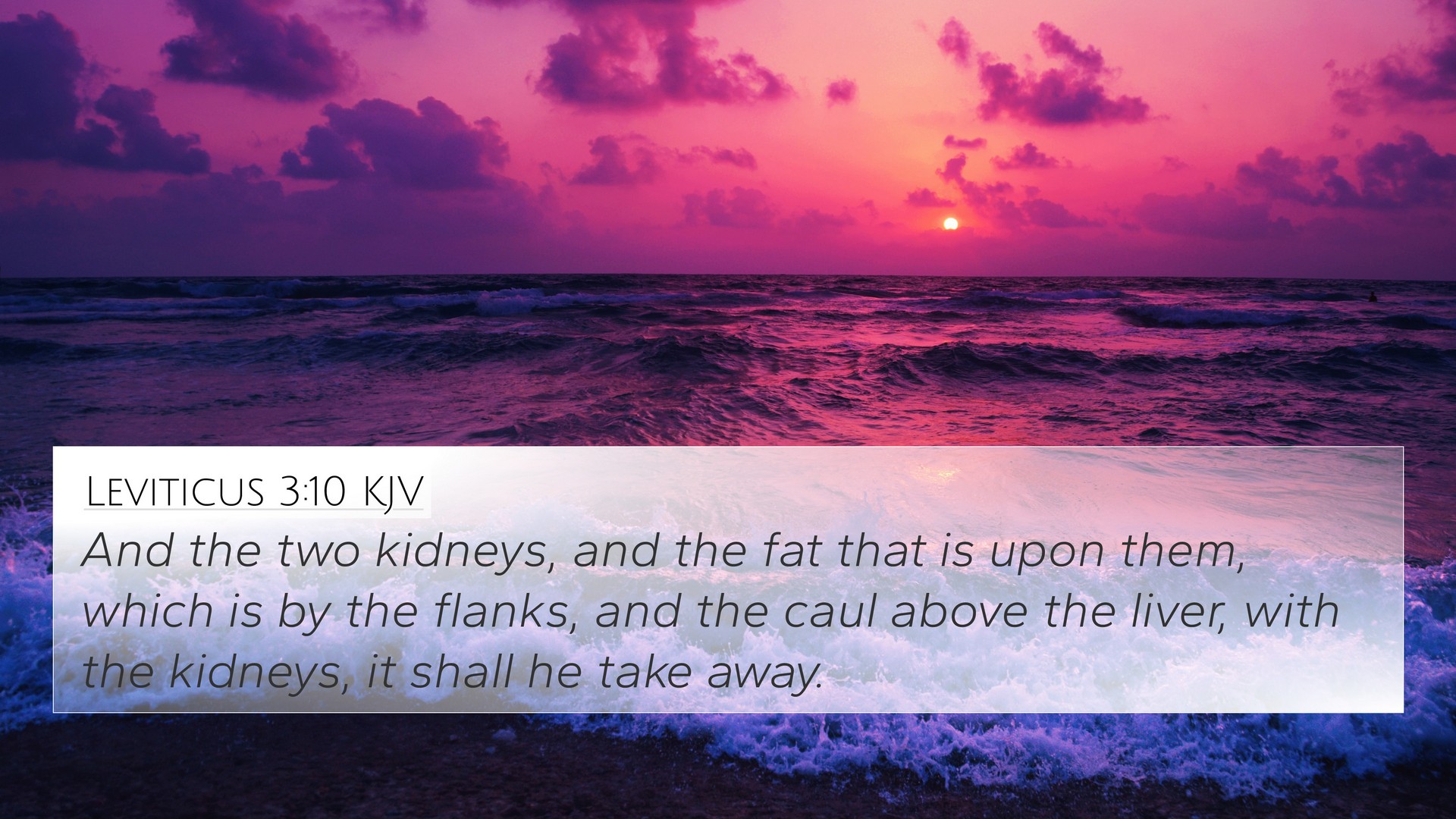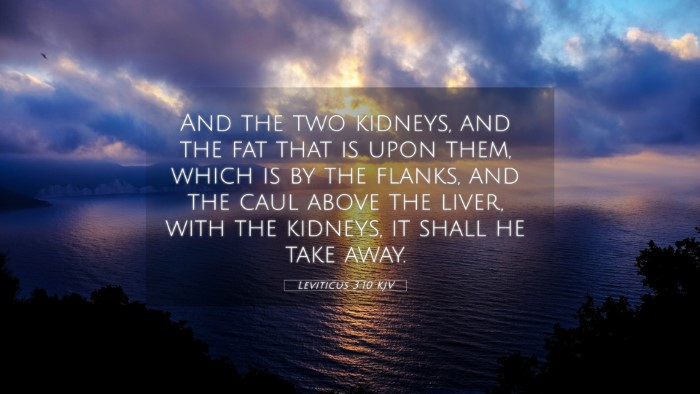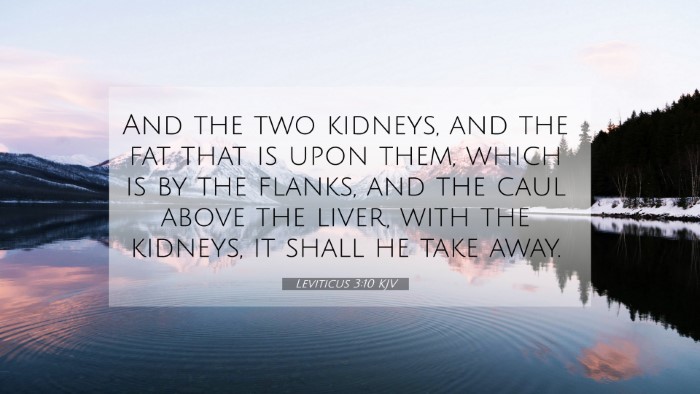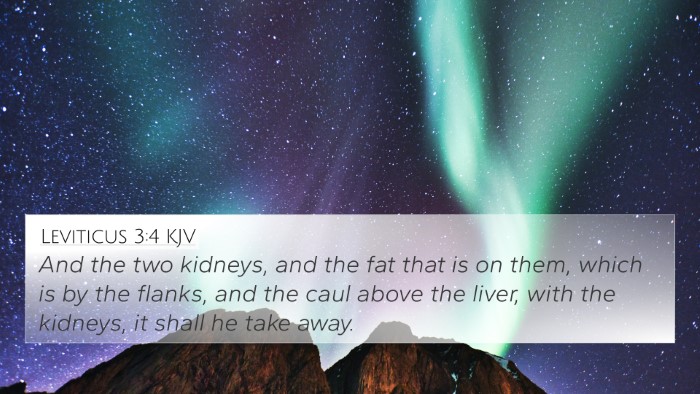Leviticus 3:10 - Summary and Meaning
Leviticus 3:10 states: "And the fat on it shall be the offering made by fire, for a sweet aroma. All the fat is the Lord's." This verse is part of instructions regarding the peace offering, which is a significant type of sacrifice in the Old Testament.
This verse emphasizes the importance of offering fats as a means of worship and dedication to the Lord. The inclusion of "a sweet aroma" indicates that God finds pleasure in these offerings, symbolizing both devotion and communion with Him.
Interpretation from Commentaries
Insights from notable public domain commentaries provide a deeper understanding of this verse:
-
Matthew Henry:
Henry elucidates that the fat represents what is best in the offering. It signifies the richest part of the sacrifice, which denotes the worshipper's intent to glorify God with their best. By declaring the fat as belonging to the Lord, it reinforces God's sovereignty over all offerings.
-
Albert Barnes:
Barnes focuses on the significance of the fire mentioned in the offering. Fire represents God's presence and acceptance of the sacrifice. The sweet aroma is an anthropomorphic expression that describes God's pleasure in the sincere worship of His people through their offerings.
-
Adam Clarke:
Clarke adds that the peace offering and its fat, when rendered to God, symbolize a covenant relationship. He speaks to the act of worship encompassed in this sacrifice and how it fosters reconciliation and fellowship with God.
Bible Cross-References
This verse connects with several other passages in the Bible, which can enhance our understanding of its meanings and implications:
- Leviticus 1:17 - The mention of the fat in burnt offerings.
- Genesis 4:4 - Abel's offering of the fat portion signifies acceptance by God.
- Exodus 29:18 - The application of the fat in the consecration of offerings.
- Psalm 51:17 - God values a broken spirit more than sacrifices.
- Hebrews 13:15 - The sacrifice of praise as an offering to God.
- Romans 12:1 - Presenting our bodies as a living sacrifice.
- 1 Peter 2:5 - Being a holy priesthood offering spiritual sacrifices.
- Acts 10:4 - God receives offerings made by prayer and thanksgiving.
- Matthew 5:23-24 - The importance of reconciliation before offering to God.
- John 4:24 - Worshipping in spirit and truth as a form of sacrifice.
Thematic Connections
Understanding Leviticus 3:10 opens the door to various themes in Scripture:
- Worship and Offerings: The significance of how we present our devotion to God through sacrificial acts.
- God's Sovereignty: Acknowledging that everything belongs to God, and He deserves our best.
- Communion with God: The idea of being in a relationship with God facilitated by offerings and sacrifices.
- Acceptance of Worship: How God regards the intentions behind our offerings rather than just the act itself.
Cross-Referencing Biblical Texts
Using tools such as a Bible concordance or cross-reference guide can aid in exploring the connections between these verses. By understanding the relationships, you can enrich your study and grasp the larger narrative of God's redemptive story.
How to Use Bible Cross-References
The process involves:
- Identifying key themes in a verse.
- Finding other verses that echo those themes.
- Analyzing how the verses relate to one another.
- Using the insights gained for personal study or sermon preparation.
Conclusion
In summary, Leviticus 3:10 teaches us the importance of offering our best to God, encapsulating the themes of worship, relationship, and God's acceptance of our sincere offerings. By engaging with cross-references and examining inter-Biblical dialogues, we gain a fuller picture of biblical principles and God's character.



